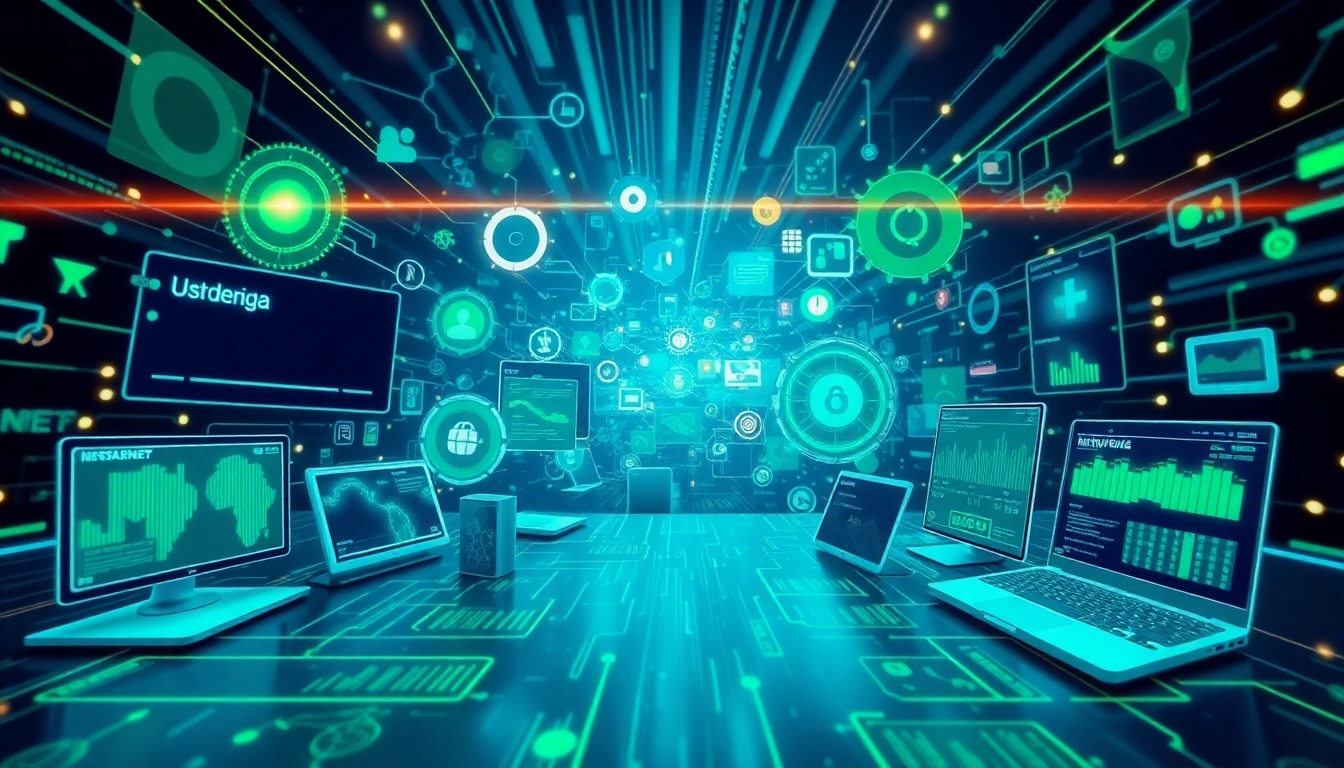Understanding Technology: Definitions and Applications
What is Technology?
Technology is a broad term that encompasses the techniques, methods, and processes employed to create products or services that fulfill human needs and desires. Essentially, it is the application of scientific knowledge to solve real-world problems and make our lives easier and more efficient. This definition extends to various domains, from communication to healthcare, and even agriculture. For those seeking a deeper understanding, you can explore more about technology and its implications through various resources online.
Types of Technology in Daily Life
In our everyday lives, technology manifests in numerous forms, categorized into various types:
- Information Technology (IT): Encompasses hardware, software, and networks that facilitate data management and communication.
- Consumer Electronics: Devices like smartphones, laptops, and tablets that enhance entertainment and communication.
- Industrial Technology: Used in manufacturing, robotics, and production processes to increase efficiency and output.
- Medical Technology: Innovations that improve healthcare delivery, such as telemedicine, medical imaging, and wearable health tracking devices.
- Environmental Technology: Solutions that address ecological challenges, including renewable energy and waste management systems.
The Importance of Technology in Modern Society
Technology plays a crucial role in shaping contemporary society. It drives economic growth, enhances communication, and improves the quality of life. Through technological advancements, global connectivity has been made possible. Businesses leverage technology to innovate their products, streamline operations, and enhance customer experiences, while individuals benefit from conveniences like online shopping, social networking, and access to limitless information.
The Historical Journey of Technology Development
Milestones in Technological Advancements
Throughout history, numerous milestones have defined the evolution of technology:
- The Wheel (circa 3500 B.C.): Revolutionized transportation and labor.
- The Printing Press (1440): Allowed for mass communication and dissemination of knowledge.
- The Steam Engine (1712): Paved the way for the Industrial Revolution, transforming production and manufacturing.
- The Internet (1960s): Globalized communication and transformed how information is shared and consumed.
- Artificial Intelligence (21st Century): Currently reshaping industries and how we interact with technology.
Impact of Historical Events on Technology
Significant historical events have often driven technological innovation. Wars have accelerated developments in communication and weaponry, such as the advances in radar and computing during World War II. Similarly, the space race spurred innovations that trickled down to civilian technologies, fostering numerous applications in telecommunications and materials science. Understanding these intersections allows us to recognize patterns in technological advancement as responses to societal needs and challenges.
Lessons from the Past: Learning from Technology’s Evolution
As technology continues to evolve, it is vital to learn from its history. Previous advancements highlight the importance of ethical considerations, such as the impacts of coal and petroleum on the environment. Technological advancements provide both opportunities and challenges. A balanced approach, incorporating sustainability and ethics in technological development, is necessary for ensuring the welfare of future generations.
The Role of Technology in Business
How Technology Enhances Business Efficiency
Corporations worldwide recognize that embracing technology is crucial for staying competitive. Automation of repetitive tasks reduces human error, increases speed, and allows human capital to focus on strategic initiatives. Cloud computing facilitates collaboration among remote teams and streamlines operations. Furthermore, data analytics empowers businesses with insights needed for informed decision-making, ultimately driving profitability and sustained growth.
Emerging Technologies Shaping Industries
Several emerging technologies are currently reshaping industries:
- Artificial Intelligence: Enhances customer service through chatbots and personalizes marketing efforts through predictive analytics.
- Blockchain: Provides secure, transparent transactions that can revolutionize sectors such as finance and supply chain management.
- Internet of Things (IoT): Connects devices to the internet, facilitating smart homes and efficient energy management.
- Augmented Reality (AR) and Virtual Reality (VR): Transforms training, gaming, and entertainment experiences.
Case Studies: Successful Technological Implementations
Numerous businesses have effectively integrated technology to achieve success:
- Amazon: Revolutionized retail by leveraging data analytics, cloud computing, and logistics technology to enhance customer experience.
- Netflix: Utilized advanced algorithms and technology to personalize content delivery, leading to its rise as a major entertainment provider.
- Tesla: Disrupted the automotive industry with electric vehicles and integrated technology in manufacturing through automation and AI.
Ethical Considerations in Technology
Privacy Issues Surrounding Modern Technology
As technology advances, concerns about privacy and data security grow. The collection and management of personal data by corporations raise ethical questions regarding consent, ownership, and transparency. Individuals are increasingly aware of their digital footprints and demand accountability from companies. Establishing clear privacy policies and ethical data management practices is essential for building trust and ensuring compliance with regulations such as GDPR.
Environmental Impact of Technological Advancements
While technology often provides solutions to environmental issues, it can also contribute to ecological harm. For instance, e-waste from discarded electronics poses significant environmental challenges. Sustainable technological practices, such as recycling programs and energy-efficient designs, are critical in mitigating the adverse effects of technological advancements on the environment. Implementing eco-friendly technologies can aid businesses in reducing their carbon footprints.
Ethical Use of Artificial Intelligence and Automation
As AI and automation become entrenched in various sectors, ethical considerations regarding their implementation are paramount. Decisions made by AI systems can have profound implications, leading to biases and unfair outcomes. Organizations must strive to develop equitable and transparent AI systems, ensuring fairness in hiring, lending, and other critical areas. Continuous assessment and maintenance of AI systems are necessary to uphold ethical standards and societal expectations.
Future Trends: What’s Next in Technology?
Predictions for Technological Innovations
The ever-evolving landscape of technology promises exciting developments in the upcoming years. Areas such as AI, quantum computing, and sustainable technologies are poised to grow significantly. Predictions suggest breakthroughs in healthcare technology, leading to advancements in patient care and treatment personalization. Additionally, the increasing reliance on renewable energy sources will drive innovation in clean-tech solutions.
The Future of Work: Remote and Tech-Driven
The workforce landscape is transforming with the rise of remote work facilitated by technology. Collaboration tools, virtual communication platforms, and cloud services allow teams to work efficiently from various locations. This trend is expected to continue as companies increasingly adopt flexible work environments. Organizations will need to integrate tools that support collaboration, productivity, and maintain employee engagement in a remote setting.
Preparing for Tomorrow: Skills for the Tech Landscape
As technology progresses, the demand for a tech-savvy workforce increases. Essential skills for the future include coding, data analysis, cybersecurity, and digital marketing. Education systems should adapt to prepare students for these demands, focusing on STEM education and digital literacy. Lifelong learning and upskilling initiatives will also become critical as the workforce seeks to remain relevant in a rapidly changing job market.














